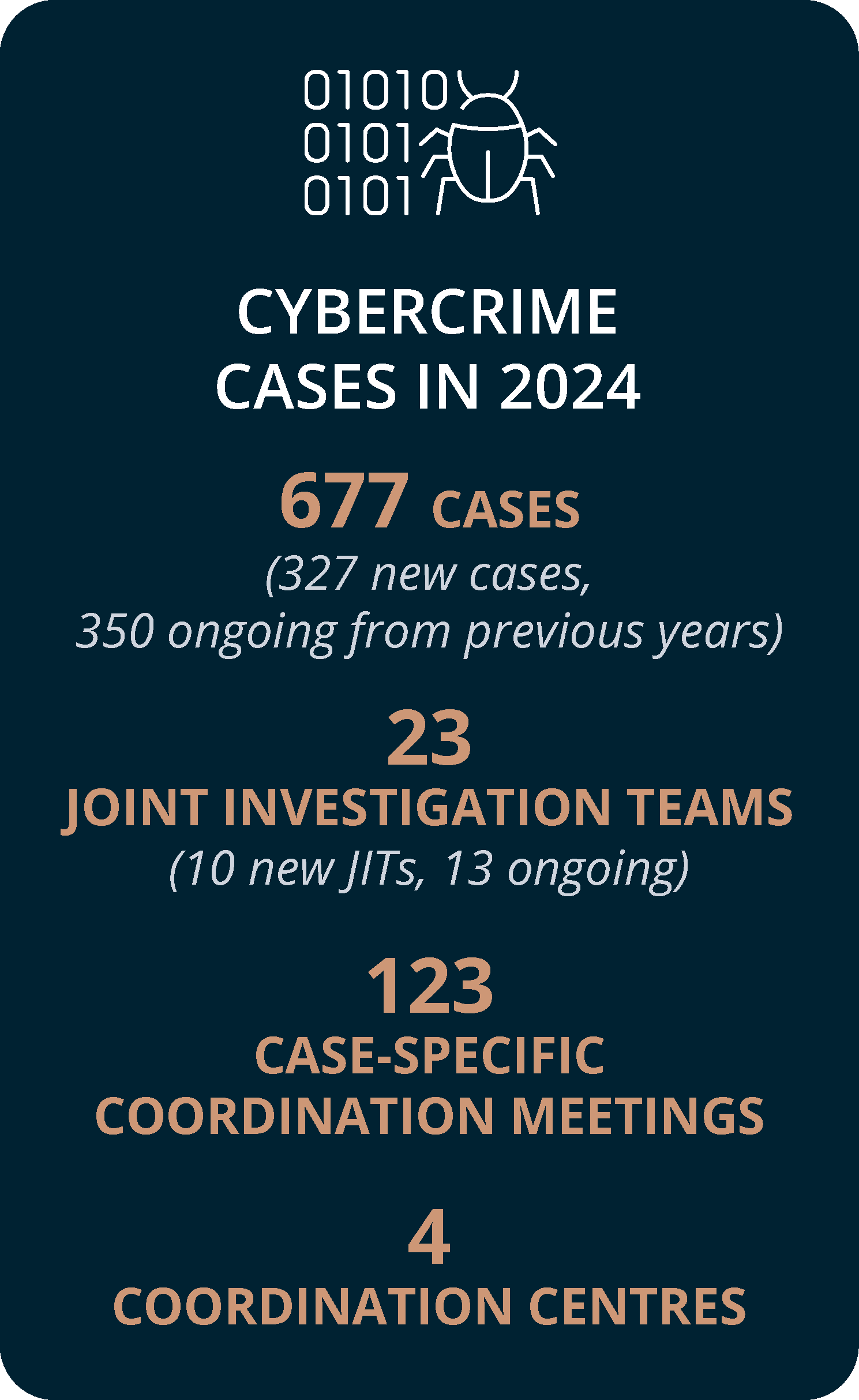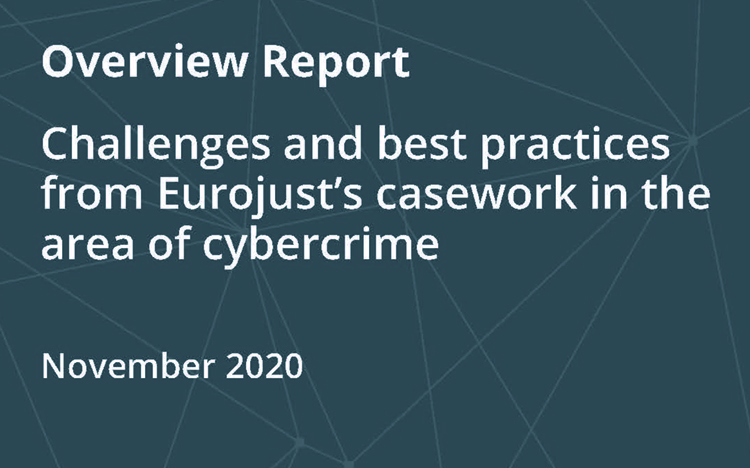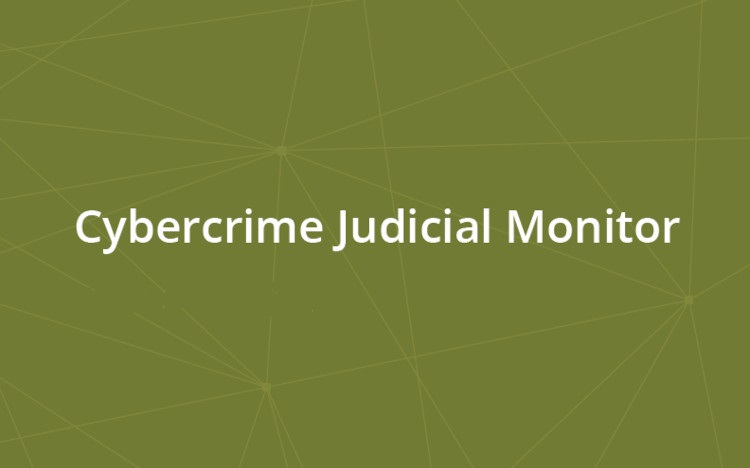
Technological breakthroughs over the past few years have brought many positive developments for society. Cybercriminals exploit the speed and anonymity of the Internet to commit a range of criminal acts, from large-scale cyber-attacks to activities such as using malware, phishing and spam, or the use of crypto-currencies for illicit transactions. Further, technology can also facilitate serious organised crimes, such as terrorism and money laundering.
The often borderless nature of cyber- and cyber-related crime makes effective cross-border cooperation essential to investigate and prosecute perpetrators. Eurojust supports national authorities to work together and to make use of available cross-border investigative tools. Eurojust also hosts the European Judicial Cybercrime Network at the Agency’s premises in The Hague.


